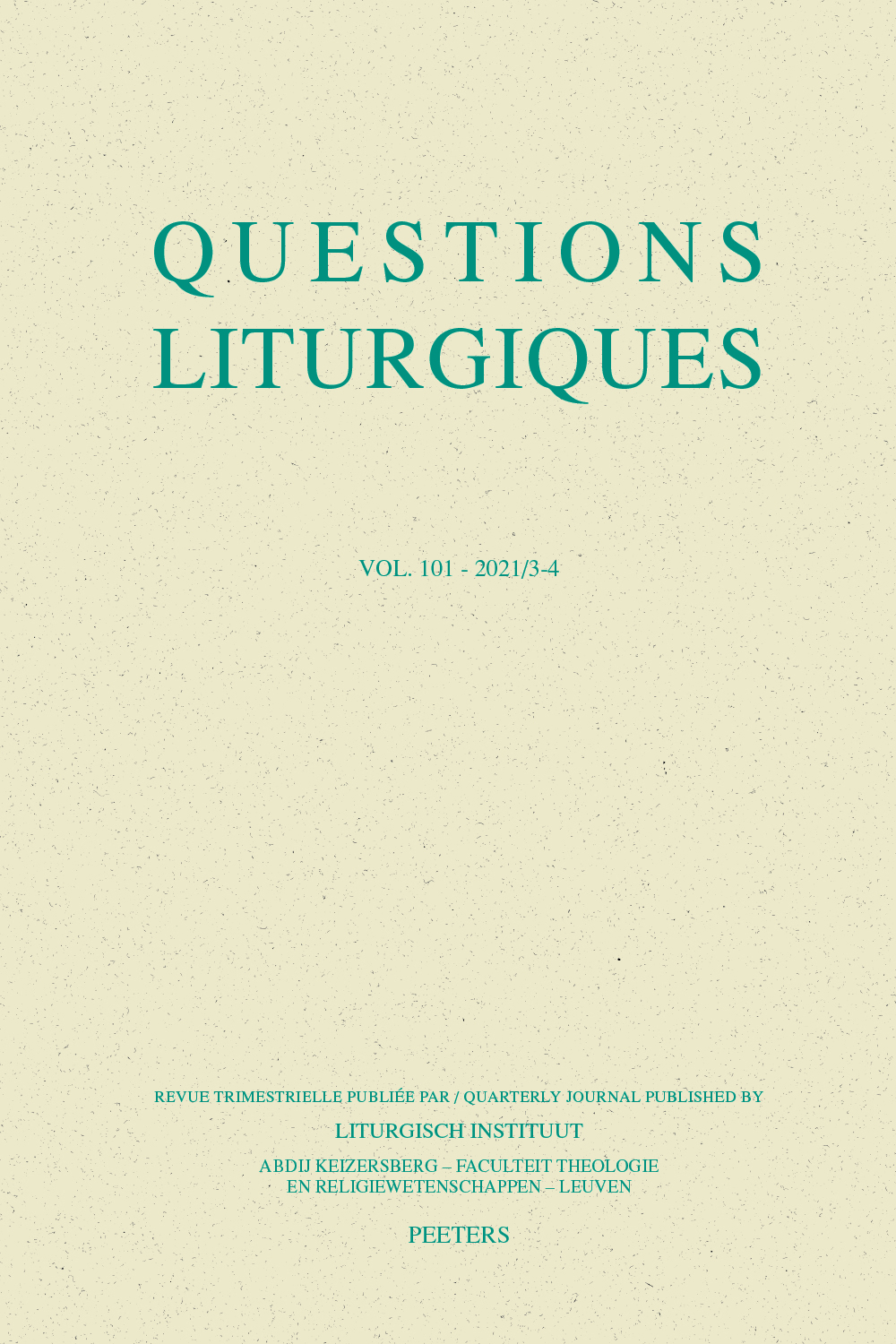 previous article in this issue previous article in this issue | next article in this issue  |

Preview first page |
Document Details : Title: Alexander Schmemann and 'The West' Subtitle: A Reexamination of Schmemann's Theological Vision in Light of his Engagement with Feuerbach and Nietzsche Author(s): MONGE, Rico G. Journal: Questions Liturgiques/Studies in Liturgy Volume: 93 Issue: 1-2 Date: 2012 Pages: 17-33 DOI: 10.2143/QL.93.1.2174115 Abstract : This article explores the liturgical theology of the Eastern Orthodox scholar and priest Alexander Schmemann and his creative engagement with two of the most ardent critics of Christianity, the philosophers Ludwig Feuerbach and Friedrich Nietzsche. Rather than reacting polemically against these thinkers, Schmemann’s mode of interacting with them is to affirm their critiques while transforming them in light of his own unique liturgical and sacramental vision of the world. Schmemann is thus able to reify Feuerbach’s materialist critique of Christianity, together with his concern to liberate human beings from self-alienation, in such a way that destroys the common Christian polarization between the spiritual and the material. Likewise, Schmemann affirms that Nietzsche’s assertion that Christianity is a joyless, life-denying religion is warranted. Rather than refuting Nietzsche, Schmemann articulates a sacramental vision of the world that has deep resonances with Nietzsche’s philosophical project of world-affirmation. This reading of Schmemann’s liturgical theology in light of his engagement with Western philosophy in turn illuminates and clarifies one of the most troubling aspects of Schmemann’s writings - his pervasive railing against the 'Western captivity' of Orthodox theology - and reveals that Schmemann’s theological vision necessitates continual reflection upon Western thinking rather than polemical dismissal of it. Cet article se veut une investigation de la théologie liturgique du maître et prêtre oriental orthodoxe Alexandre Schmemann et de son engagement positif avec deux des plus ardents détracteurs du Christianisme, les philosophes Ludwig Feuerbach et Friedrich Nietzsche. Plutôt que de réagir d’une manière polémique envers ces penseurs, la manière de Schmemann d’intervenir avec eux est de reprendre leurs critiques en les confrontant à la lumière de sa propre unique vision liturgique et sacramentelle. Schmemann est ainsi capable de rejeter la critique matérialiste du christianisme de Feuerbach, en même temps que d’affirmer son intérêt de libérer les êtres humains d’une aliénation égocentrique. De la sorte il écarte la polarisation chrétienne ordinaire entre le spirituel et le matériel. De même Schmemann affirme que l’assertion de Feuerbach que le christianisme est dépourvu de joie, rejette la vie, est garantie. Plutôt que de réfuter Nietzsche, Schmemann articule une vision sacramentelle du monde qui a des résonances profondes avec le projet philosophique de Nietzsche de l’affirmation du monde. Cette lecture de la théologie liturgique de Schmemann à la lumière de son engagement avec la philosophie occidentale éclaire et clarifie à son tour un des aspects les plus étonnants de ses écrits - sa mise en garde persuasive contre ‘l’emprisonnement occidental’ de la théologie orthodoxe - et révèle que la vision théologique de Schmemann. nécessite une réflexion continue sur la pensée occidentale plutôt qu’un rejet polémique de celle-ci. |
|


